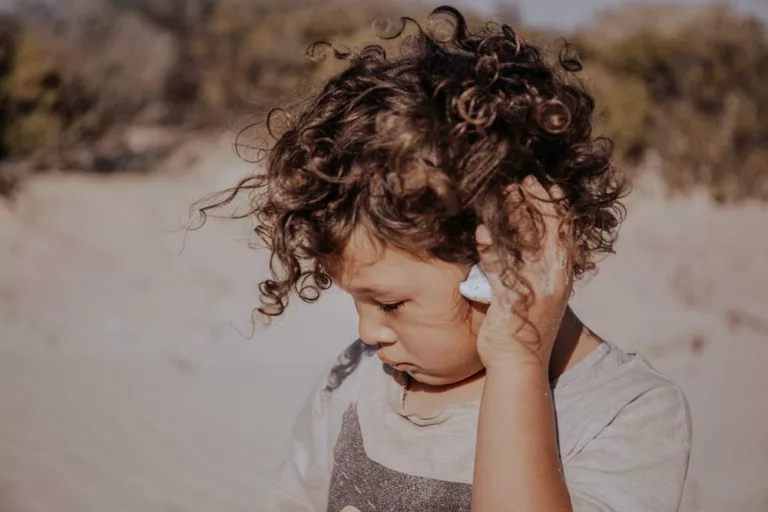“I’m a brave monster! Watch me roar!!” Once anxious and timid, this little boy had completely expanded!
When given the space, children naturally move to integrate the difficult and significant experiences in their life.
They will naturally progress and move into mastery in that specific aspect of their lives. But first, you may encounter the BIG feelings thrown at you via projection.
Kids “project” their upsets onto safe situations so they can process them. Projecting means kids can work through feelings they have held onto during the day because they couldn’t properly feel them at the time.
We often misunderstand projections because the upset is often out of context to the situation, i.e. you cut the toast wrong. The upset could be interpreted as manipulation or “attention seeking.”
Kids often have one or two people (primary attachments) who they feel safe to project with. Have you noticed this with your own kids?
This person can sometimes be blamed for tolerating “bad behaviour” by others who don’t see the whole picture or have a little to no understanding of the nervous system.
Projections are healthy opportunities to offload and unburden themselves! If we can support our kids and help them identify emotions and cognitive processes when they are projecting, as they get older, they will be able to do this for themselves. What a BIG WIN long term!
This is where Play therapy comes into the picture! Kids use play to project their implicit memories and beliefs about the world.
Learning how to connect with children and intentionally invite your child to explore implicit memories (their expectations and unconscious ideas about themselves and the world) is a powerful gift for both parents and child.
Play Therapy is a way for them to release their stress responses through:
- Flight – big cries, running away, peekaboo
- Fight – aggressive play, running, jumping, pushing down blocks, competitive games
- Freeze – anything that sets the body in motion
- Fawn – competitive games, nurturing games, games that allow them to be imperfect like messy play with total acceptance
Your nervous system is your child’s container for their self-awareness. If you can learn to trust your child’s play, they will do and say everything they need to heal. Their bodies are so wise.
The play space is a container and safe place for them to project their inner worlds! Their self-concept, hopes and fears all ‘come out to play’ and to be released!
The problem is, most often, as parents, we are conditioned to shut down the types of play that children find healing.
Learning Play Therapy perspectives is a wonderful way to help your children regulate through play!
For example, a child who has experienced loss may use their time in play to express sadness and grief. Over time, they will come to a place where they integrate and resolve the emotions.
They will reach a place of mastery, where their play will reflect their level of understanding of the event. You will notice they are more regulated more often!
Mastery play is where children express a sense of being totally capable in the world. They show contentment, generosity, kindness and empathy.
Their play will have an expansive sense of freedom. They will sing, dance and move freely. They will show flexibility, relaxation and embodiment.
This is their true nature! What a beautiful chance for you to celebrate their growth together.
We can name the experience and acknowledge their growth!
After just a few sessions of Play Therapy, we often hear from parents that their kids keep asking for more Connected Play sessions and can’t wait for the next one! That is like sweet music to our ears!
Want to dive deeper into the world of Play Therapy?
Be on the lookout for our next LIVE Kids Nervous System Reset, our FREE 3 day online retreat for parents and caregivers!

